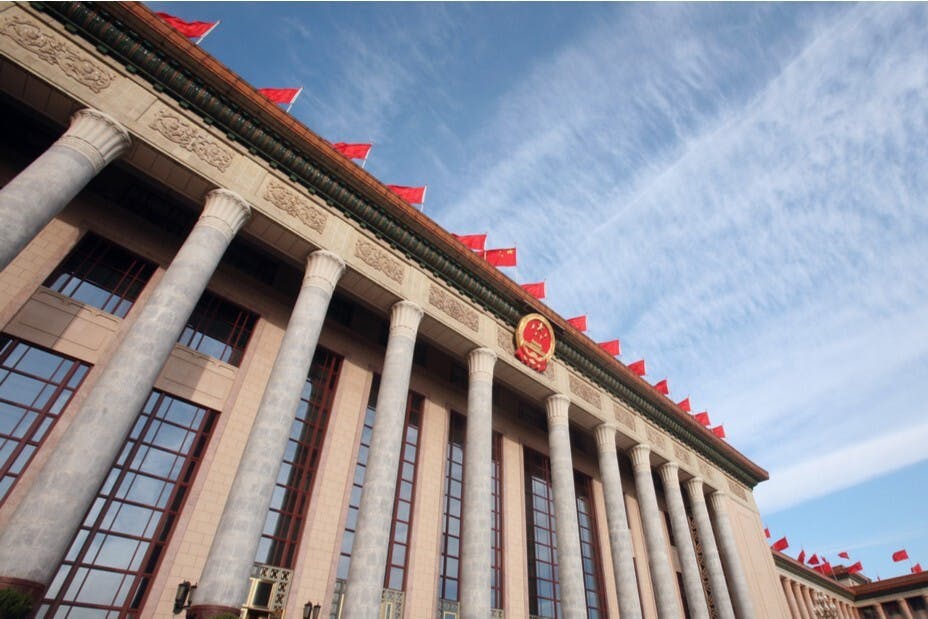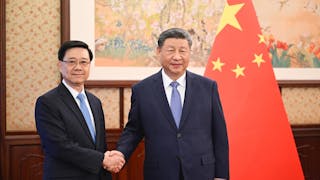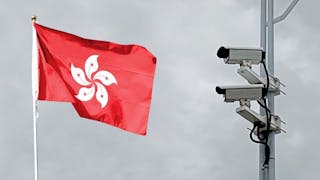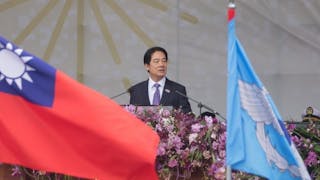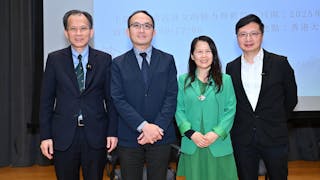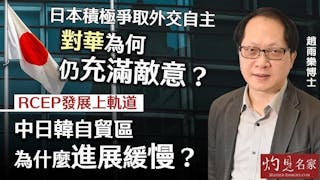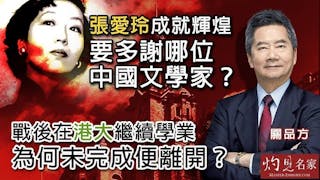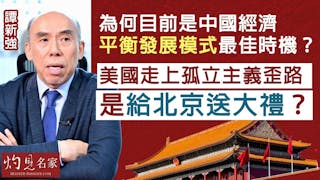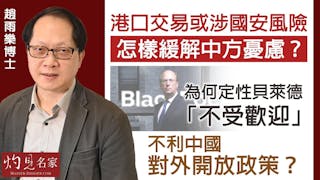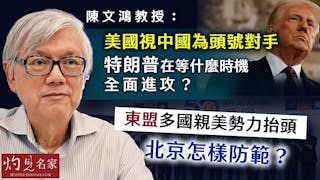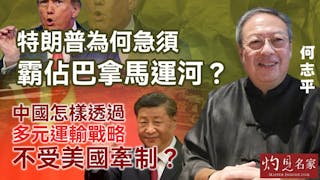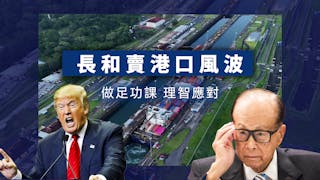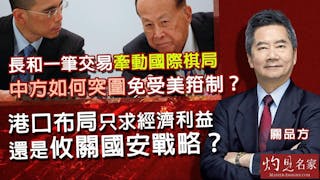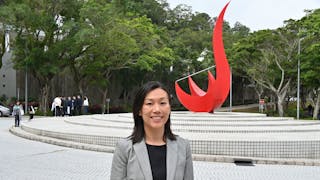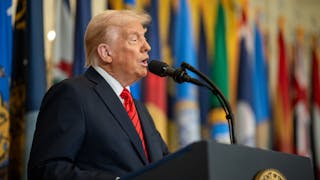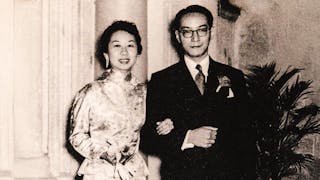12月30日,全國人大常委會以簡單的方式,從程序方面就不具備本地執業資格的外地律師能否在本港處理涉及國家安全的案件,對《香港國安法》第14條和第47條進行了解釋。
人大常委會對條文的解釋,是按中央人民政府根據《香港國安法》第11條提出的要求,向中央提交報告,並在報告中提出建議後,第13屆全國人大會議第38次會議上決定的。12月28日,人大常委全體會議聽取了港澳辦主任夏寶龍受國務院委託,關於提請解釋《香港國安法》有關條款的議案的說明。然後在同一天晚上,行政長官李家超對全國人大常委會就《香港國安法》條文作出解釋表示感謝。
釋法賦予國安委決定權
全國人大常委會的釋法包括3個要點。第一,《香港國安法》第14條訂明,香港特別行政區維護國家安全委員會(香港國安委)承擔在港維護國家安全的主要責任,國安委有權對是否涉及國家安全問題作出判斷和決定。第二,香港國安委決定具有法律效力且不受司法覆核;第三,特區行政、立法、司法等機構均應尊重香港國安委的決定並執行。
因此,全國人大常委會的釋法,首先是賦予香港國安委在國家安全相關問題上的判斷和決定權,使之具有法律效力。
第二,根據《香港國安法》第47條,特區法院在審理危害國家安全案件中遇有涉及有關行為是否涉及國家安全,或者有關證據材料是否涉及國家秘密的認定問題,應當向行政長官提出並取得行政長官就問題發出的證明書;行政長官的證明書對特區法院具有法律效力。
因此,人大常委會對第47條的解釋,賦予了行政長官作為重要法律把關人的權力,可以簽發對法院具有法律效力的證明書,有關證明書可以處理涉及國家安全的問題。賦權行政長官和香港國安委,是全國人大常委會釋法的決定性特徵。
第三,關於不具有香港特別行政區全面執業資格的海外律師是否可以擔任危害國家安全犯罪案件的辯護人或者訴訟代理人的問題,全國人大常委會指屬於《香港國安法》第47條規定的需要認定的問題,應當取得行政長官發出的證明書。同時補充說明,如果特區法院沒有向行政長官提出並取得證明書,香港國安委應當根據《香港國安法》第14條的規定作出相關的判斷和決定。
這意味着即使特區法院可能不尋求行政長官的證明書,香港國安委也應根據第14條的規定履行其職責,作出相關的判斷和決定。同樣,釋法賦權行政長官和香港國安委,旨在釐清與國家安全案件相關問題的過程中,由行政長官和香港國安委雙重把關。
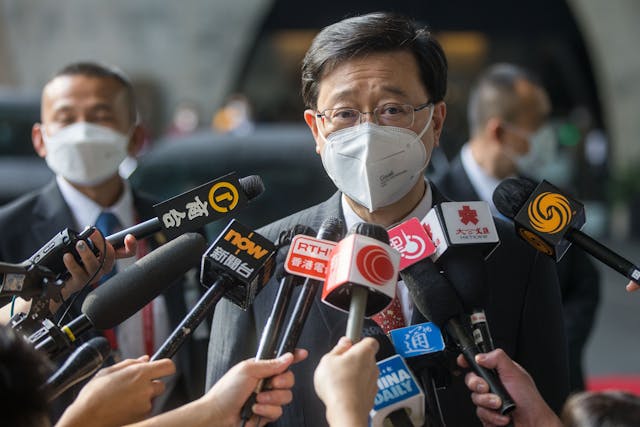
人大常委會簡單處理 避免評論之前判決
從釐清誰該做什麼、何時該做、怎樣做的政治角度來看,人大常委會釋法有幾個特點:
首先,人大常委會釋法賦予行政長官和香港國安委權力,前者具有發出證明書的法定權利,後者具有作出相關判斷和決定的合法性和權威。從政治上講,行政長官和香港國安委在法律上有權就涉及國家安全的問題作出判斷和決定,例如沒有全面執業資格的海外律師是否可以處理國家安全案件。簡言之,行政長官和香港國安委似乎擁有解釋如何處理國家安全相關問題的法律和政治權力。
第二,本地傳媒誤以為人大常委會釋法涉及《香港國安法》第55條、第12條、第13條和第63條。人大常委會釋法均未對它們進行討論。細讀第55條,在涉及國家安全的複雜、嚴重、具有威脅性案件的情況下,它關注的是中央駐香港國安公署在香港的司法管轄權;第12條關注中央政府對香港國安委的監督和問責,而第13條涉及香港國安委的組成;第63條關注的是對辦理國家安全案件的司法機關和律師的保密要求。
相反,人大常委會釋法似乎採用了一種簡單但有效的方法,關注的僅是《香港國安法》第14條和第47條,並賦予香港國安委和行政長官在處理與國家安全相關問題上的作用並使具有法律效力。因此,雖然本地傳媒在推測人大常委會解釋哪些條文方面並不準確,但事實證明,釋法本身更為簡約、有效且有力。這一現象表明,不少港媒分析人士,甚至法律專家,對中國內地法律仍不完全了解。
第三,全國人大常委會釋法後,行政長官李家超隨即透露,政府會考慮修訂《法律執業者條例》,以加強保障國家安全。根據《香港國安法》第14條規定,香港國安委應當分析研判形勢,規劃有關工作,制定香港維護國家安全政策。行政長官在12月30日晚發表的講話,指出有需要修訂現行的《法律執業者條例》。
事後看來,幾周前關於不具有全面執業資格的海外律師是否可以處理國家安全案件的問題是否需要全國人大常委會釋法的爭論出現後,有一些本地傳媒報道一些特區政府法律專家的意見,這些意見認為,特區政府可以在不尋求全國人大常委會釋法的情況下,首先修改相關的本地法律,或許更好。
第四,全國人大常委會的釋法是精明的,因為它沒有涉及特區法院法官的判決;它也沒有直接回答是否應該允許沒有本地資格的外國律師處理國家安全案件的問題。相反,釋法只是釐清了法律程序,並授權行政長官和香港國安委作出正確的判斷和決定。因此,人大常委會的釋法尊重香港的法治,但只是以簡單的方式,釐清了處理中央政府要求的適當程序。
總而言之,人大常委會釋法在處理香港政府的要求時,採取了一種可以說是簡單有效的方式,旨在釐清處理有關國家安全案件的程序,同時授權香港國安委和行政長官作出決定和判斷。事後看來,特區政府考慮修改《法律執業者條例》的事實表明,它本來可以做得更多。儘管如此,特區政府仍將採取補救措施。簡單來說,人大常委會的釋法是簡單、有效、具有法律效力的,它賦予香港國安委和行政長官以正面有力的方式,處理有關國家安全問題的權力,同時避免了對特區法院法官之前的判決發表任何意見。
An Analysis of NPC Standing Committee’s Interpretation of the National Security Law in Hong Kong
On December 30, the Standing Committee of the National People’s Congress (SCNPC) interpreted Article 14 and Article 47 of the National Security Law of the People’s Republic of China (PRC) in Hong Kong, showing a minimalist approach to focusing on the procedural aspects of whether a foreign lawyer without local qualifications can handle a national security-related case in the territory.
The interpretation was adopted at the 38th session of the 13th NPC meeting after a proposal had been made by the State Council in response to a report submitted by the Hong Kong Chief Executive to the central government. On December 28, Xia Baolong, the director of the Hong Kong and Macau Affairs Office, introduced the Hong Kong government’s request for an interpretation of the national security law during the first day of the NPC meeting. Then on the same night, Chief Executive John Lee expressed his gratitude to the central government for accepting his government’s request for the interpretation.
The interpretation carries three major points. First, Article 14 of the Hong Kong National Security Law empowers the Committee for Safeguarding National Security (CSNS) of the Hong Kong Special Administrative Region (HKSAR) to have statutory duties to protect national security and to decide that the information and work related to national security should not be disclosed. Furthermore, the CSNS decision is not subject to judicial review and its decision can be enforced with legal authority. Finally, no administrative, legislative or judicial body or individual can intervene in the work of the CSNS, whose decisions must be respected and enforced.
As such, the first point of the SCNPC interpretation empowers and legitimizes the role of the CSNC in making judgement and decisions with regard to national security-related questions.
Second, according to Article 47 of the National Security Law, the courts of Hong Kong, when encountering questions in the adjudication of cases related to offenses that endanger national security, shall request and obtain a certificate from the Chief Executive to clarify questions on whether an act involves national security or whether the related evidence may involve state secrets. Such certification from the Chief Executive is legally binding on the courts.
Therefore, SCNPC interpretation of Article 47 empowers the Chief Executive as a crucial legal gatekeeper, who can issue a certificate with legally binding impact on the courts, and whose certificate can deal with national security-related questions. The empowerment of the Chief Executive, together with that of the CSNS, has become the defining feature of the SCNPC interpretation.
Third, on the question of whether a foreign lawyer without full practising qualifications in Hong Kong can be allowed to act as the legal representative of the litigant concerned, the SCNPC refers this question to the certification from the Chief Executive as required in Article 47. Moreover, the interpretation has added that, if the local courts do not seek the certification from the Chief Executive, then the CSNS should in accordance with Article 14 make the related judgment and decision.
This means that even if the local Hong Kong court may not seek the certification from the Chief Executive, the CSNS should perform its duties procedurally under Article 14 to make related judgment and decisions. Again, the interpretation empowers both the Chief Executive and the CSNS as double gatekeepers in the process of clarifying questions related to the national security cases.
From a political perspective of clarifying who gets what, when and how, there are several characteristics of the SCNPC interpretation.
First, the SCNPC interpretation empowers both the Chief Executive and the CSNS, the former with the legitimate right of issuing a certificate and the latter with the legitimacy and authority of making related judgements and decisions. Politically speaking, the Chief Executive an the CSNS are empowered legally to make judgments and decisions on national security-related questions, such as whether a foreign lawyer without full local qualifications can deal with a national security case. To put it simply, the Chief Executive and CSNS appear to have the legal and political power of interpretating how national security-related questions should be handled.
Second, the local media were wrong in predicting that the SCNPC interpretation would touch on Article 55, Article 12, Article 13, and Article 63 of the National Security Law. None of them was discussed by the SCNPC interpretation. A careful reading of Article 55 shows that it is concerned about the jurisdiction of the Office for Safeguarding National Security of the Central People’s Government (OSNSCPG) in Hong Kong when a national security-related case is complex, serious, and threatening. Article 12 is concerned about CSNS’s supervision by and accountability to the central government, while Article 13 touches on the composition of the CSNS. Article 63 is concerned about the confidentiality requirements for legal authorities and lawyers who handle national security-related cases.
Instead, the SCNPC interpretation appears to adopt a minimalist but an effective approach to focusing on only Article 14 and Article 47 of the National Security Law, and to empowering and legitimizing the role of the CSNS and the Chief Executive in dealing with national security-related questions. As such, while the local media were inaccurate in predicting which Articles would be interpreted by the SCNPC, the interpretation itself has turned out to be far more minimalist, effective, and yet powerful. The phenomenon shows that many Hong Kong media analysts and even legal experts still do not fully understand the mainland Chinese law.
Third, immediately after the SCNPC interpretation, Chief Executive John Lee revealed that the government would study how to amend the Legal Practitioners Ordinance for the sake of enhancing the safeguard for national security. According to Article 14 of the National Security Law, the CSNS shall analyse the assess the developments, make work plans, formulate policies, and advance the development of legal system and enforcement mechanisms that are related to the protection of national security. The Chief Executive’s remarks on the night of December 30 pointed to the need to amend the existing ordinance on legal practitioners.
With the benefit of the hindsight, when the debate emerged a few weeks ago over whether the SCNPC interpretation would really be required on the issue of a foreign lawyer without local qualifications to deal with a national security-related case, there were some local media reports critical of the Hong Kong government’s legal experts, who according to such criticism could perhaps have done a better job by amending the related local ordinance in the first place without seeking the SCNPC interpretation.
Fourth, the interpretation made by the SCNPC was a shrewd one because it does not touch on the decision of the local court judges in the HKSAR. Nor does it answer the question directly on whether a foreign lawyer without local qualifications should be allowed to deal with a national security case. Instead, the interpretation just clarifies the legal procedures and empowers both the Chief Executive and the CSNS to make proper judgements and decisions. As such, the SCNPC interpretation respects the rule of law in Hong Kong, but it merely adopts a minimalist approach in clarifying the proper procedures to deal with the request made from the central government.
In conclusion, the SCNPC interpretation adopts an arguably a minimalist but an effective approach in dealing with the Hong Kong government’s request. It seeks to clarify the procedures of handling the national security case concerned, while empowering the CSNS and the Chief Executive to make decisions and judgements. With the benefit of hindsight, the fact that the Hong Kong government would later amend the legal practitioners’ ordinance shows that it might have done more in the first place. Still, remedial measures will be taken by the local administration. In brief, the interpretation made by the SCNPC is minimalist, effective, legally binding, and is empowering the CSNS and Chief Executive to deal with the national security question concerned in a positive and powerful manner, while simultaneously avoiding any comment on the previous decisions made by the local courts.
原刊於澳門新聞通訊社(MNA)網站,本社獲作者授權轉載。網址:https://www.macaubusiness.com/opinion-an-analysis-of-npc-standing-committees-interpretation-of-the-national-security-law-in-hong-kong/



